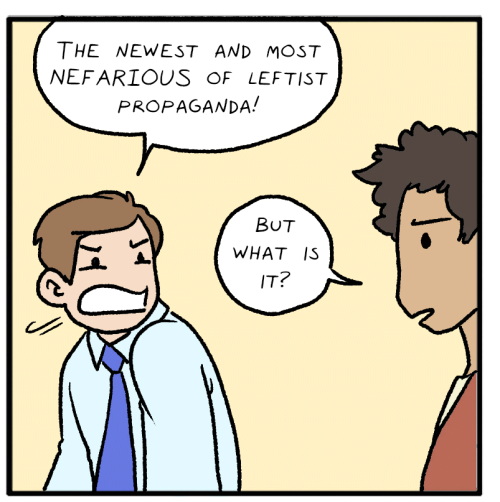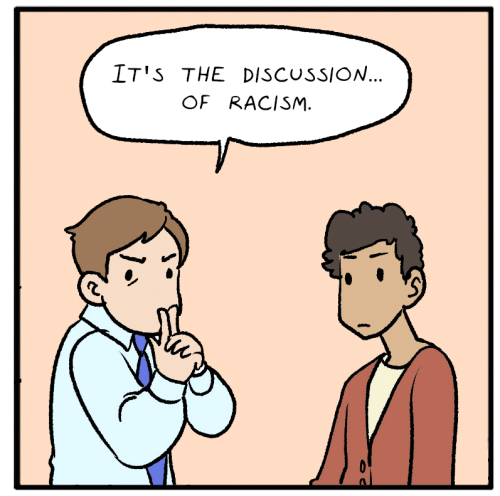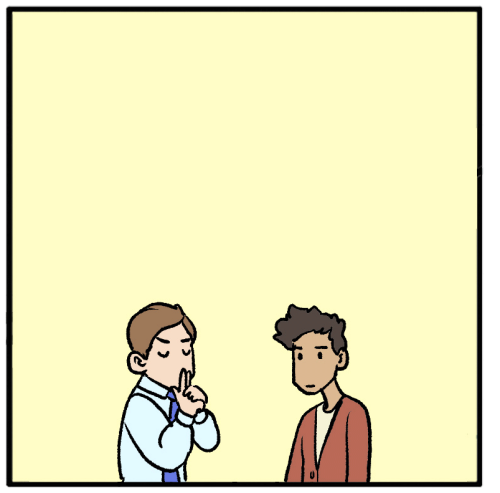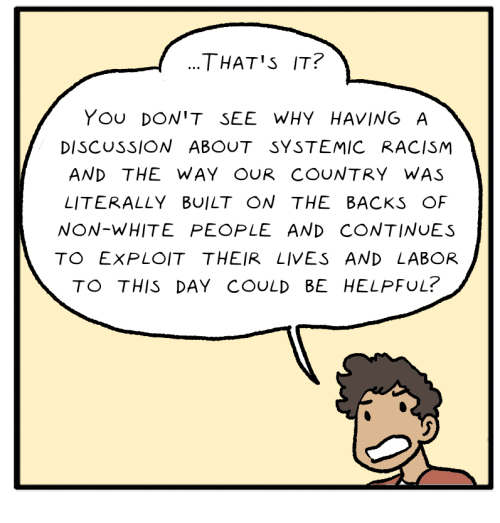#critical race theory
During the so-called “cold war”, white conservatives labelled the civil rights movement “communists” in an effort to discredit the cultural and political push towards racial equality in the United States. It was a campaign of fearmongering whose intent was to scare white folk from supporting racial justice. The manufactured panic around CRT is just more of the same old playbook (which has employed such hits as panic around antifa, decrying “woke politics”, denunciations of “cancel culture”, the “dangers” of Black Lives Matter, attacking the 1619 project, and on and on). CRT is just the Right’s latest “culture war” bugaboo.
What CRT means to American conservatives is simply this: it’s a catch-phrase for “politics that I don’t like.” It also seems to be effective propaganda (and that’s what it is, pure, unadulterated propaganda). I say “effective propaganda” because CRT isn’t taught through grades K-12 even though this factually incorrect claim to CRT is central to the objections espoused by conservatives.
CRT is a complex theory developed by law professors and one only encounters the theory in postgraduate education. Its goal is to elucidate how racial inequality is supported and maintained through the crafting and enforcement of American law (even in the wake of the civil rights movement). Period.
This segment is worth a watch if you want a basic introduction around the American Right’s framing of CRT. If you want more information, here are some links to read (plus another video):
1.How a Conservative Activist Invented the Conflict Over Critical Race Theory
2. The engineered conservative panic over critical race theory, explained
3. The Anti–Critical Race Theory Movement Will Profoundly Affect Public Education
4. 1 truth and 3 lies about Critical Race Theory
Here’s the extra video:
Critical Race Theory And “Moral Panic”
Oh, hell, here’s another extra video for a wider context (that I thought was ok):
The Psychology of Authoritarianism
Caitlin Wood’s 2014 edited volume Criptiques consists of 25 articles, essays, poems, songs, or stories, primarily in the first person, all of which are written from disabled people’s perspectives. Both the titles and the content are meant to be provocative and challenging to the reader, and especially if that reader is not, themselves, disabled. As editor Caitlin Wood puts it in the introduction, Criptiques is “a daring space,” designed to allow disabled people to create and inhabit their own feelings and expressions of their lived experiences. As such, there’s no single methodology or style, here, and many of the perspectives contrast or even conflict with each other in their intentions and recommendations.
The 1965 translation of Frantz Fanon’s A Dying Colonialism, on the other hand, is a single coherent text exploring the clinical psychological and sociological implications of the Algerian Revolution. Fanon uses soldiers’ first person accounts, as well as his own psychological and medical training, to explore the impact of the war and its tactics on the individual psychologies, the familial relationships, and the social dynamics of the Algerian people, arguing that the damage and horrors of war and colonialism have placed the Algerians and the French in a new relational mode.
Read the rest of Criptiques and A Dying ColonialismatTechnoccult
Back in the spring, I read and did a critical comparative analysis on both Cressida J. Heyes’ Self-Transformations: Foucault, Ethics, and Normalized Bodies, and Dr. Sami Schalk’s BODYMINDS REIMAGINED: (Dis)ability, Race, and Gender in Black Women’s Speculative Fiction. Each of these texts aims to explore conceptions of modes of embodied being, and the ways the exterior pressure of societal norms impacts what are seen as “normal” or “acceptable” bodies.
For Heyes, that exploration takes the form of three case studies: The hermeneutics of transgender individuals, especially trans women; the “Askeses” (self-discipline practices) of organized weight loss dieting programs; and “Attempts to represent the subjectivity of cosmetic surgery patients.” Schalk’s site of interrogation is Black women speculative fiction authors and the ways in which their writing illuminates new understandings of race, gender, and what Schalk terms “(dis)ability.
Both Heyes and Schalk focus on popular culture and they both center gender as a valence of investigation because the embodied experience of women in western society is the crux point for multiple intersecting pressures.
Read the rest of Bodyminds, Self-Transformations, and Situated SelfhoodatTechnoccult
One of the things I’m did this past spring was an independent study—a vehicle by which to move through my dissertation’s tentative bibliography, at a pace of around two books at time, every two weeks, and to write short comparative analyses of the texts. These books covered intersections of philosophy, psychology, theology, machine consciousness, and Afro-Atlantic magico-religious traditions, I thought my reviews might be of interest, here.
My first two books in this process were Frantz Fanon’s Black Skin, White Masks and David J. Gunkel’s The Machine Question, and while I didn’t initially have plans for the texts to thematically link, the first foray made it pretty clear that patterns would emerge whether I consciously intended or not.

[Image of a careworn copy of Frantz Fanon’s BLACK SKIN, WHITE MASKS, showing a full-on image of a Black man’s face wearing a white anonymizing eye-mask.]
In choosing both Fanon’s Black Skin, White Masks and Gunkel’s The Machine Question, I was initially worried that they would have very little to say to each other; however, on reading the texts, I instead found myself struck by how firmly the notions of otherness and alterity were entrenched throughout both. Each author, for very different reasons and from within very different contexts, explores the preconditions, the ethical implications, and a course of necessary actions to rectify the coming to be of otherness…
Read the rest of Colonialism and the Technologized Otherat Technoccult.net
Zuby discusses social engineering in the arts with Douglas Murray. 8 January 2021.
metalheadsforblacklivesmatter:
Thinking Critically
Kendra Wells, Copyright 2021 - The Nib
-yinx1
Post link






